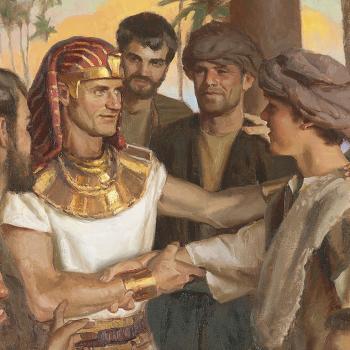Yet another media sensation is taking the world by storm—The Girl with the Dragon Tattoo. Judging from the early reviews, the film adaptation of Stieg Larrson's trilogy has the potential to sweep the world's theatres.
As with countless narratives, vengeance is at the heart of the story. The New York Times' A. O. Scott observes that the appeal of the story's protagonist, Lisbeth, "arises from a combination of vulnerability and ruthless competence." She "can hack any machine, crack any code and, when necessary, mete out righteous punitive violence, but she is also (to an extent fully revealed in subsequent episodes) a lost and abused child."
In that regard, The Girl with the Dragon Tattoo is hardly new. Taking nothing from the power of the story and the trilogy of which it is a part, vengeance and the behavior that it fuels is a common motif of drama, both old and new. Alexander Dumas's The Count of Monte Cristo is, for example, a classic illustration of its enduring power.
The desire for vengeance is primal and universal. An ugly and unpredictable passion, vengeance can embroil its avatar in the same injustice that sparked the desire for it in the first place. It is, for that reason alone, that much of the fiction devoted to the subject explores the process by which the victim is made a victimizer by the drive for vengeance.
What we explore less often is the spiritual disorder elsewhere to which vengeance points. Vengeance can be irrational, the product of paranoid delusion. But the desire for it—whether we act on it or not—can also be evidence of profound injustice and disorder elsewhere.
In reflecting on the imprecatory Psalms that call for God to be Israel's avenger, C. S. Lewis noted that the venom in those Psalms was not there to be imitated. Rather, they were cautionary, reminding us of just how much pain we can inflict on one another.
Just why this spiritual dilemma is explored less often (or so it seems to me), is hard to pinpoint. It is dramatically easier to explore the singular quest of one individual for vengeance and the perils of that quest. It is easier to portray the momentary satisfaction that can be achieved in returning an eye for eye. And it is easier to portray the power vengeance has to distort and disorient the one who seeks it.
But it is also harder to portray the larger, formative process that teaches individuals and cultures the perils of sin and the value of justice. That requires time, rigor, and countless acts of discipline that are far harder to perform than a lifetime of vengeance. And it also requires a fundamentally different orientation to life.
There is no way to prove it, but it occurs to me that stories of vengeance might also be more common—and certainly more popular—when people feel powerless and societies lose their capacity to talk openly and forcefully about sin. A girl with a dragon tattoo can seem like an avenging angel in a world that lacks that capacity. Without a vocabulary for sin, its confession, and redress—and without those who use that vocabulary—the only way to balance the scales will always appear to be the singular, violent application of force.
This is why the Christian message stubbornly insists on the conversion of the individual heart and the conviction that, ultimately, only God can finally balance the scales of justice. Common efforts can and should be made to improve the world in which we live. It is often our failure to make that effort which strands victims of violence in powerless places that makes vengeance seem like the only option.
But it is not enough. No communal effort can promise moral transformation. And no human effort can redress all of the losses suffered by the children among us with the dragon tattoo.
12/19/2011 5:00:00 AM





